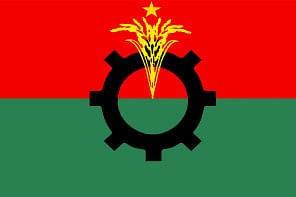Power cuts, load-sheddings are hurting rural freelancers

Not too long ago, freelancing was deemed an exciting career prospect for thousands of skilled Bangladeshi youths. The rapid digitalisation of the country, combined with a rising number of skilled, educated, but unemployed workforce—and consistently low market wages—contributed to a freelancing boom in Bangladesh over the last decade.
Statistics paint a happy picture too. The Bangladesh Freelancing Development Society (BFDS) sources state that there are at least 10,50,000 active freelancers in the country, although unofficial numbers put that figure at a much higher estimate. According to a Payoneer study, Bangladesh was also the 8th largest exporter of online labour in 2019 and consistently ranks as one of the top countries preferred by employers.
But despite the conditions working out to their apparent advantage, rural freelancers in Bangladesh still remain one of the least supported communities. Lack of appropriate payment gateways, struggles in availing seamless banking services, and the general lack of recognition—all add up to a freelancer's woes. Now with the global energy crisis and supply shortage, the reality on the ground is grimmer than ever before.
The state of rural freelancers
Based out of Khulna, Sudiptta Apu is a successful freelancer who was recently featured in Upwork's 2022 spotlight—a segment that highlights the story and profile of Upwork's top-rated professionals. For Sudiptta, being featured and highlighted in one of the world's top freelance marketplaces was a huge honour. It was a testament to his professionalism, skill and record.
But despite such accolades, Sudiptta, who is a designer by profession, shares what it is actually like being a freelancer in Bangladesh. "I had to muster up a lot of courage when I first decided to quit my job and start freelancing full-time. Because I knew it would not be easy. I knew very few would accept it as a recognised and respectable career path," he shared.
Sudiptta shared how banking services seem to discriminate against freelancers who are not usually able to show a traditional income source. "It is a painstaking process to open a bank account when you are a freelancer and they ask you to show proof of income," he shares.
"As freelancers, we are remittance-earners. The government deducts taxes when we receive our income. Why is it that we are not recognised properly?"
He says that despite several promises, the government has failed to bring services like PayPal in the country, making it difficult for Bangladeshi freelancers to compete freely in the global market. And he shared how the recent power outages cut into the working hours, making it difficult for local freelancers to communicate with their clients abroad on time.
"Our clients who are abroad often fail to understand that we are facing troubles because we have no power. Often we cannot communicate on time, or submit projects on time. This brings down our image and lessens our chances of getting more work because the client will just give the work to someone who is more efficient and timely," he shares. "Often, I have to work overtime to make up for the lost hours. And no one prefers working overtime."
For others, like Sourav Sarker of Chandpur who works primarily with digital marketing, the outages ate into the hourly wages. "If I cannot bid on a project on time, I do not get that project. It is usually that simple," shares Sourav. "I have also had cases where the scheduled power outage of one hour went on to last for three hours and I could not submit my project on time. The client ultimately gave me a bad rating and it definitely affected my profile."
Sourav mentioned how freelancers from remote villages of India had better prospects than their counterparts in Bangladesh because they had access to better resources and scopes of training. "They get to learn a lot. They have an organised community. They have scopes of training and many of them get offered permanent relocation options in places like Silicon Valley. Although we are doing good, we can barely even dream of such things," he says.
When asked if he is part of any freelancer's organisation, Sourav says that he is not. He also mentioned that he knows many freelancers who work out of a rural setting and that nobody ever tried to reach out to them with support.
"We hear of many things from time to time—like government-issued ID cards, or special provisions and training etc. But in reality, I don't think I know many freelancers who have ever been supported by these government-led programmes," he shares. "I am not even sure if they exist in reality."
When contacted, Dr Tanjiba Rahman, the current Chairman of BFDS, mentioned that the ID card project is running in full swing with 7000 ID cards already distributed and nearly 50,000 applicants currently awaiting their turn.
Freelancers in Bangladesh are thriving despite their struggles and the many obstacles that hold them back. The current energy shortage only worsens that crisis and opens up a new floodgate of obstacles.
But the future remains hopeful as more youths—particularly those who are in rural or marginal areas of the country—take up freelancing as a source of stable income, paving their own paths to success.

 For all latest news, follow The Daily Star's Google News channel.
For all latest news, follow The Daily Star's Google News channel. 



Comments